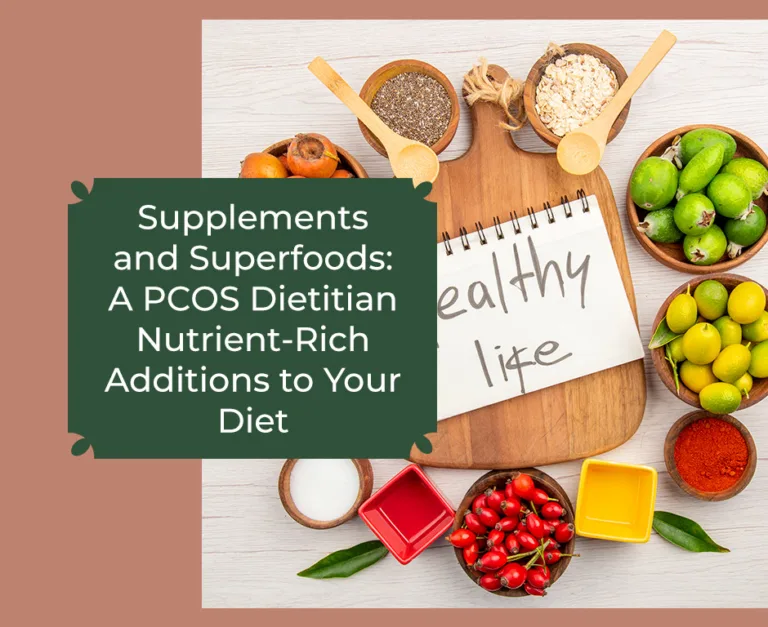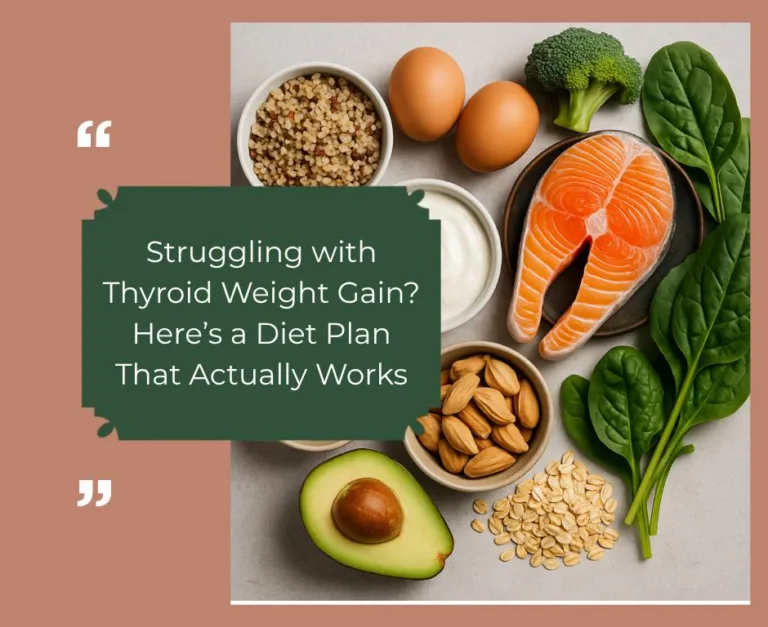Introduction
Polycystic Ovary Syndrome (PCOS) affects millions of women worldwide, leading to hormonal imbalances, weight gain, and other health challenges. While dietary changes form the foundation of managing PCOS, adding specific supplements and superfoods can provide an extra boost. As recommended by a PCOS Nutritionist, these nutrient-rich additions support hormonal balance, reduce inflammation, and improve overall well-being. In this blog, we’ll explore the top supplements and superfoods to incorporate into your PCOS-friendly diet.
Why Supplements and Superfoods Matter for PCOS
A well-rounded diet is crucial for managing PCOS, but sometimes it’s challenging to get all the necessary nutrients from food alone. Supplements and superfoods can fill these gaps, enhancing the effectiveness of your overall nutrition plan. According to a PCOS nutritionist, these additions can:
- Support insulin sensitivity.
- Reduce oxidative stress and inflammation.
- Promote hormonal balance.
Top Supplements for PCOS
- Inositol
A favorite recommendation by many PCOS dietitians, inositol (particularly myo-inositol and D-chiro-inositol) helps improve insulin sensitivity, regulate menstrual cycles, and reduce androgen levels. It’s particularly beneficial for women struggling with irregular periods or fertility issues. - Vitamin D
Studies show that women with PCOS are often deficient in vitamin D, which plays a vital role in hormone regulation, mood, and metabolism. A PCOS nutritionist may suggest supplements if sunlight exposure or dietary sources are insufficient. - Omega-3 Fatty Acids
Found in fish oil or flaxseed oil, omega-3s reduce inflammation and improve heart health—two critical concerns for women with PCOS. These fatty acids also help manage androgen levels and reduce symptoms like acne and hair loss. - Magnesium
Magnesium is known to alleviate stress, a common trigger for worsening PCOS symptoms. It also aids in improving sleep quality and regulating blood sugar levels. - Zinc
A mineral essential for reducing acne, hair thinning, and inflammation, zinc is often recommended by a PCOS dietitian for women experiencing these symptoms.
Superfoods to Add to Your PCOS Diet
- Chia Seeds and Flaxseeds
Both seeds are rich in omega-3 fatty acids, fiber, and lignans, which help regulate hormones and reduce inflammation. They are excellent additions to smoothies, yogurt, or oatmeal. - Berries
Blueberries, strawberries, and raspberries are antioxidant powerhouses. They help combat oxidative stress and are low in sugar, making them ideal for managing insulin resistance. - Leafy Greens
Spinach, kale, and Swiss chard are packed with vitamins A, C, and K. They promote hormonal balance and are excellent for reducing inflammation. - Quinoa
A nutrient-rich whole grain with a low glycemic index, quinoa supports stable blood sugar levels. It’s a great alternative to refined carbohydrates, as suggested by many PCOS nutritionists. - Turmeric
Known for its anti-inflammatory properties, turmeric contains curcumin, which reduces inflammation and improves metabolic function. Pair it with black pepper for better absorption.
How a PCOS Dietitian Can Help
Navigating the world of supplements and superfoods can be overwhelming. This is where a PCOS dietitian or PCOS nutritionist becomes invaluable. They analyze your unique health needs, identify nutrient deficiencies, and create a personalized plan to include the right supplements and superfoods in your diet.
Tips for Incorporating Supplements and Superfoods
- Start Slow: Introduce one supplement or superfood at a time to monitor its effects.
- Pair with a Balanced Diet: Supplements and superfoods work best alongside a well-rounded, PCOS-friendly diet.
- Consult a Professional: Always consult a PCOS dietitian or healthcare provider before starting new supplements to ensure safety and effectiveness.
Conclusion
Supplements and superfoods are powerful tools in managing PCOS symptoms. With the guidance of a PCOS nutritionist, you can strategically include these nutrient-rich additions to enhance your health and well-being. Remember, the key to success is consistency and a personalized approach tailored to your unique needs. Embrace the journey to a healthier, more balanced lifestyle today!

























